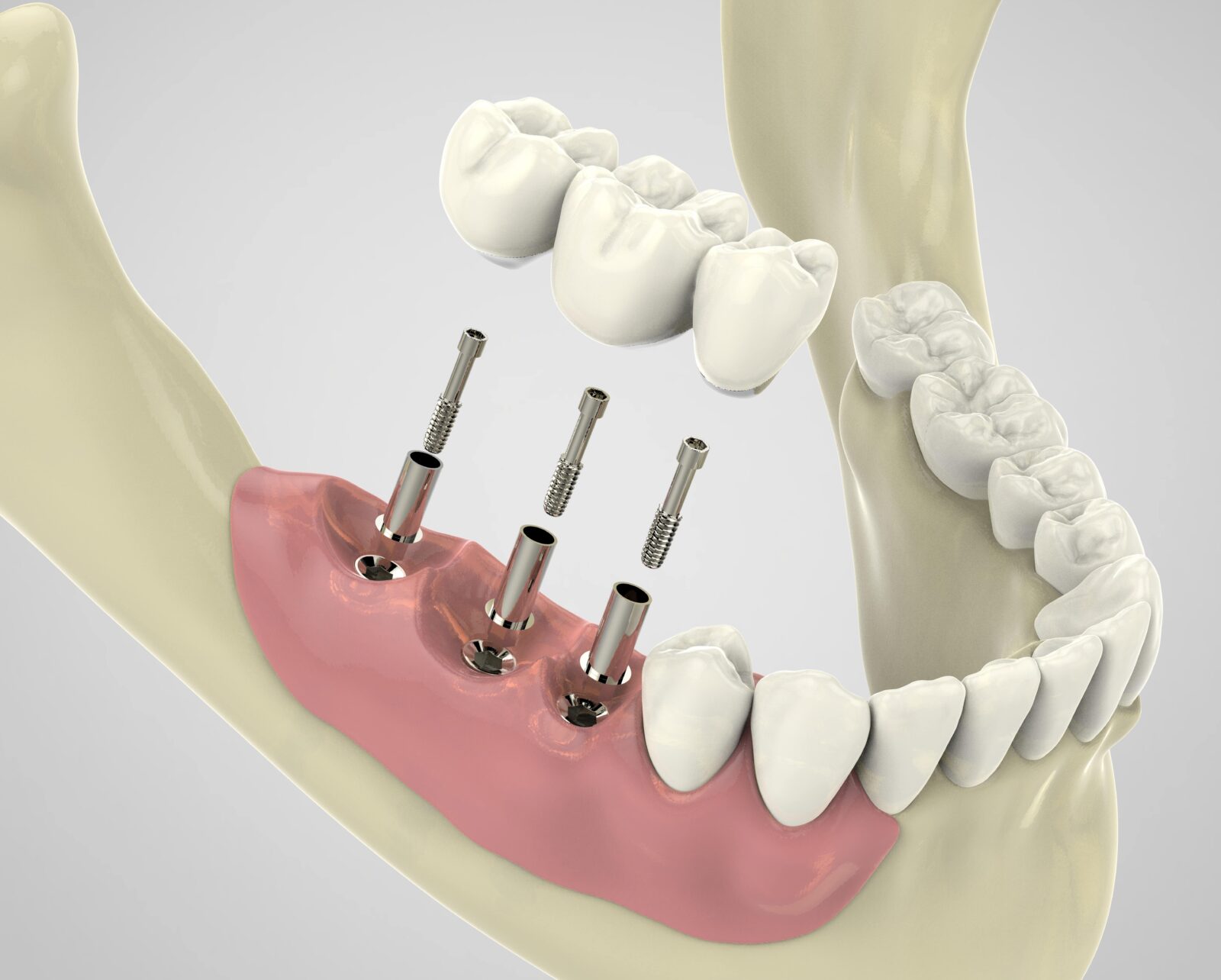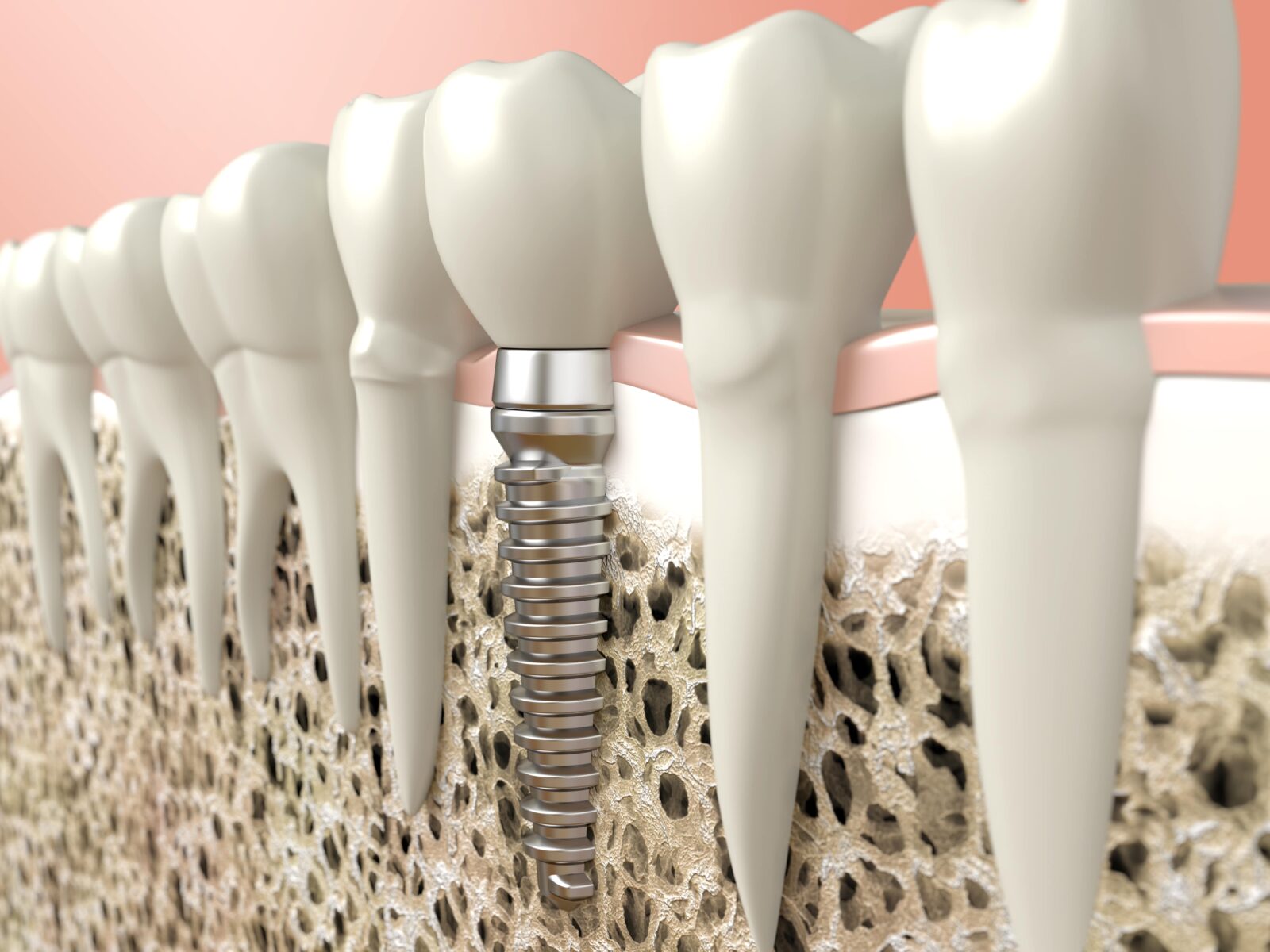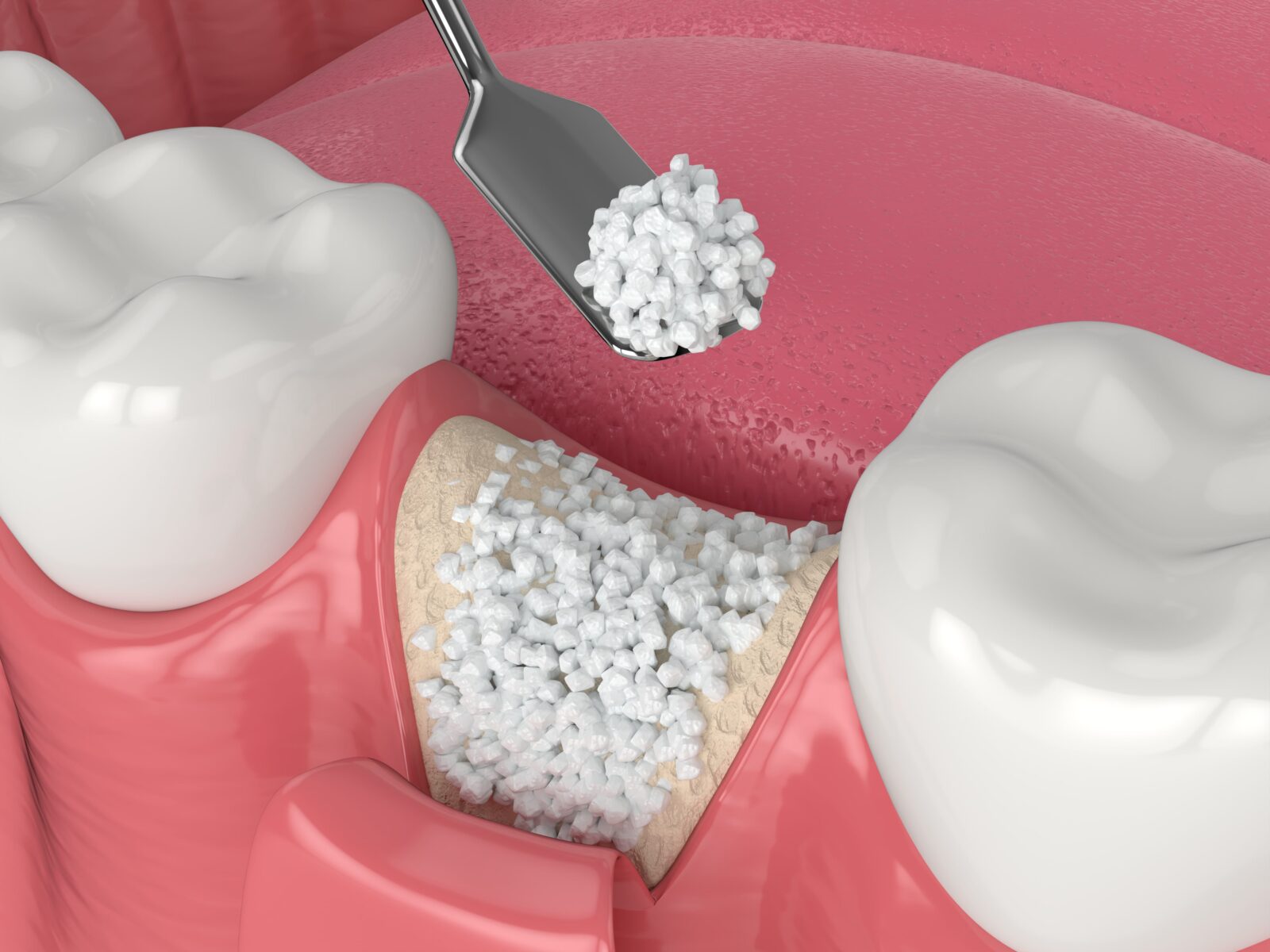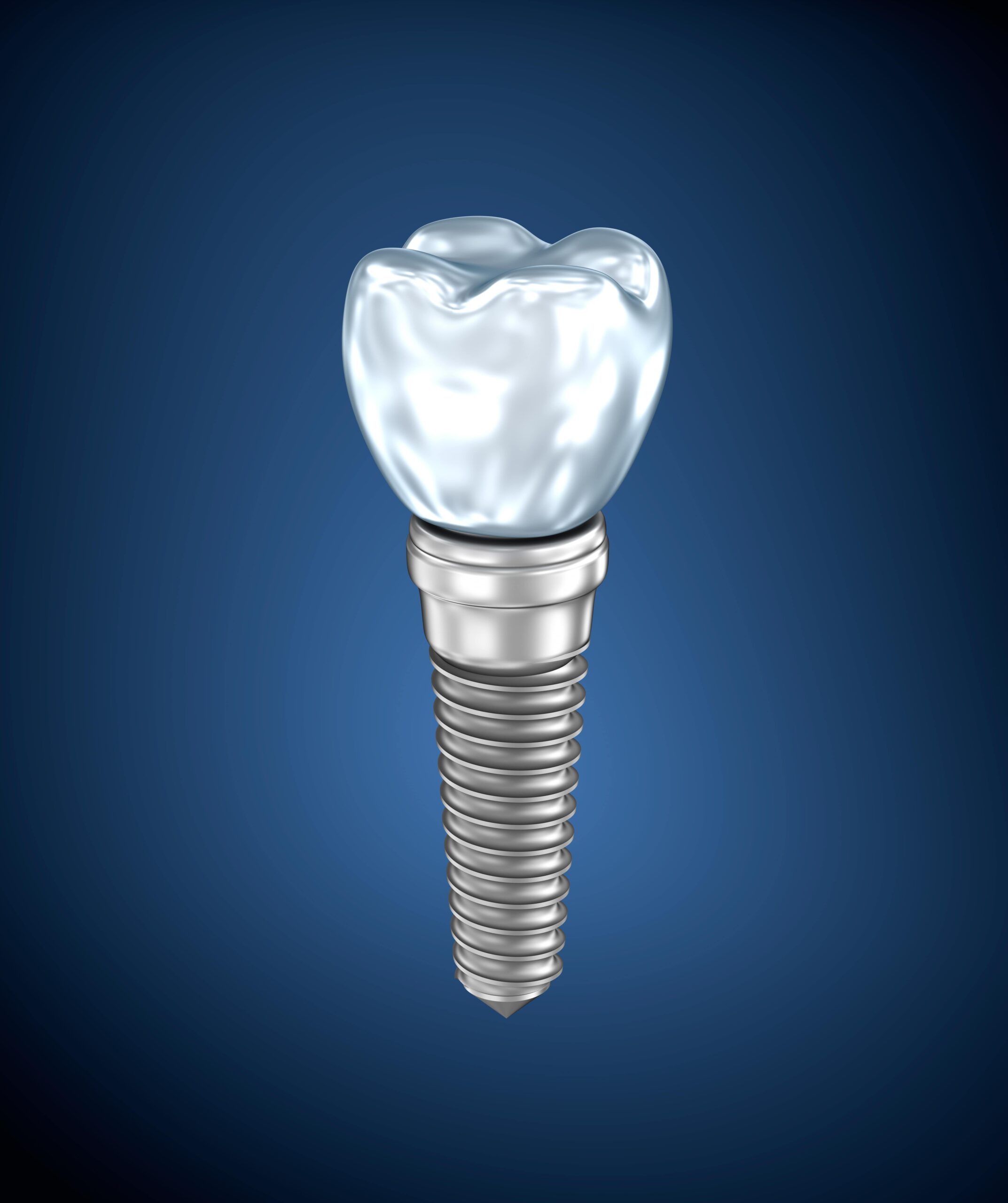Navigating the world of tooth replacement can be overwhelming, with various options available, each claiming its set of benefits. However, dental implants have risen as the gold standard in modern dentistry for replacing missing teeth. This blog post will delve into the advantages of dental implants, highlighting their unparalleled ability to restore not just the aesthetics of a lost tooth but also its function and health. From their natural appearance and feel to their long-term benefits for oral health, we’ll explore why dental implants are often the preferred choice for patients and dentists alike in the journey toward a complete and confident smile.
The Anatomy of Dental Implants

The anatomy of dental implants sets them apart from other tooth replacement options, offering a unique structure that closely mimics natural teeth. Unlike dentures, which are removable and sit on the gum line, or bridges, which rely on adjacent teeth for support, dental implants consist of a titanium post that is surgically implanted into the jawbone, acting as a substitute for the tooth root. This post integrates with the bone through a process called osseointegration, providing a stable and permanent foundation.
An abutment is then placed on top of the implant, serving as a connector for the crown, the visible part of the implant that is designed to match the rest of the teeth in color, shape, and size. This three-part structure not only ensures that the implant is strong and durable but also promotes jawbone health and prevents the bone loss typically seen with other tooth replacement methods. In essence, while dentures and bridges address the cosmetic issue of missing teeth, dental implants provide a comprehensive solution that also considers the long-term health of the jawbone and the overall functionality of the teeth.
Advantages of Dental Implants
Aesthetic and Functional Superiority
One of the most compelling advantages of dental implants is their ability to closely mimic natural teeth. They restore the appearance of the patient’s smile and the function of their bite, blending seamlessly with natural teeth in both color and shape. Unlike dentures or bridges, which may shift or feel unnatural, implants provide a fixed solution that feels like part of your own body, allowing for a natural bite and chewing ability.
Long-Term Oral Health Benefits

Dental implants play a crucial role in preserving oral health over the long term. They help maintain jawbone density by providing the necessary stimulation that bone tissue requires to stay healthy, preventing the bone loss that often accompanies tooth loss. Additionally, implants do not require the alteration of adjacent teeth, as is necessary with bridges, preserving more of the natural tooth structure and maintaining overall oral health.
Durability and Reliability
The materials used in dental implants, primarily titanium, are known for their strength and compatibility with the human body, making implants a highly durable and reliable tooth replacement option. With proper care, including regular brushing, flossing, and dental check-ups, implants can last a lifetime, making them a cost-effective solution compared to other options that may need periodic replacement or repair.
Improved Quality of Life
The impact of dental implants on a patient’s quality of life cannot be overstated. They restore the ability to eat a wide range of foods, improve speech, and eliminate the discomfort and inconvenience associated with removable prosthetics. Patients with dental implants often experience a boost in self-confidence and overall well-being, knowing their smiles are complete and their dental health is secure.
Candidates for Dental Implants
An ideal candidate for dental implants is someone who meets several key criteria that ensure the success and longevity of the implant. These criteria include:
Good General Health:
Candidates should be in good overall health and able to undergo routine dental surgery. Chronic illnesses, such as uncontrolled diabetes or heart disease, may affect the healing process and could make implant surgery more complicated.
Healthy Gums:
Healthy gum tissue is essential for the success of dental implants. Candidates should be free from periodontal disease because the health of the gums plays a crucial role in the stability of the implants. In some cases, periodontal disease can be treated prior to having dental implants placed.

Adequate Bone Density:
A sufficient amount of jawbone is necessary to support the implant. Candidates who have experienced bone loss may still be eligible for implants but might require bone grafting procedures to build up the bone beforehand.
Non-smoker or Willing to Quit:
Smoking can hinder the healing process and negatively affect the success of dental implants. Ideally, candidates should be non-smokers or willing to quit smoking before undergoing the implant procedure and throughout the healing process. With that being said, smoking does increase the risk of postoperative complications.
Good Oral Hygiene Practices:
Candidates for dental implants should be committed to maintaining good oral hygiene. Regular brushing, flossing, and dental check-ups are crucial for the longevity of the implants.
No Uncontrolled Bruxism (Teeth Grinding):
Candidates should not have untreated bruxism (teeth grinding) or clenching habits, as these can place excessive stress on the implants and affect their success. For patients with bruxism, a nightguard may be recommended prior to having implants placed.
Age:
There is no upper age limit for dental implants, but candidates must have fully matured jawbones, meaning they are typically not suitable for very young patients whose bones are still growing.
Individuals considering dental implants should consult with a dental professional to evaluate their specific circumstances and determine if they are good candidates for the procedure. This evaluation will include a thorough examination of their oral and overall health, as well as discussions about their lifestyle and expectations.
Conclusion
In conclusion, dental implants offer a comprehensive solution for tooth replacement that transcends the limitations of traditional options. Their integration with the jawbone, natural appearance, and functionality, combined with their ability to preserve oral health and improve the quality of life, make them an excellent choice for individuals seeking a permanent solution to tooth loss. By choosing dental implants, patients can enjoy a complete, healthy, and confident smile for years to come.



